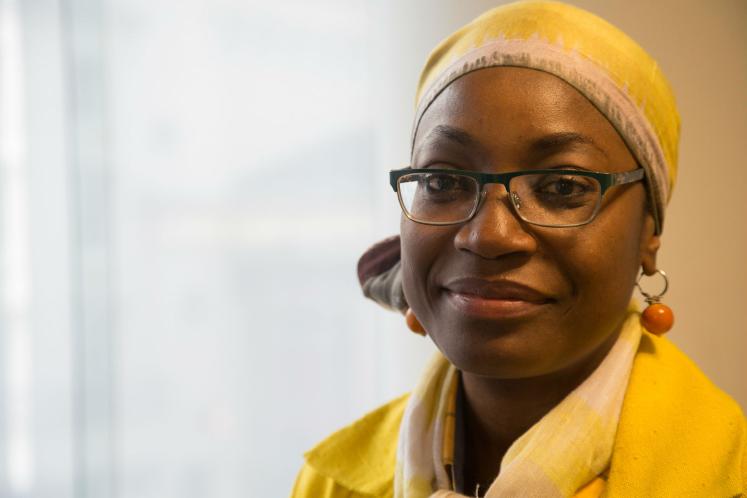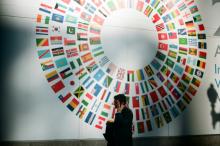First published by Utrecht University on 27 June 2023.
Fatima Denton holds the Prince Claus Chair in Equity and Development at Utrecht University on Just Transitions. Since 2018, she is the director of the United Nations University Institute for Natural Resources in Africa (UNU-INRA) in Accra, Ghana
On July 5, Dr. Fatima Denton will formally accept the appointment to the Prince Claus Chair in Equity and Development 2022-2024 at Utrecht University. In this interview prior to her inaugural lecture, Dr. Fatima Denton talks about her career trajectory and future aspirations as holder of the Prince Claus Chair.
Fatima Denton was born in the Gambia, a country embraced geographically by Senegal on the African west coast. Like many of her peers, she had no other choice but to travel outside of Gambia to find a university. While studying at the faculty of humanities at the Sorbonne University in Paris her father fell ill. Upon return, she was not allowed to resit the exams she missed. That’s when she coincidentally enrolled in Political Science and Development studies. Now she can tell that's a move she never regretted one bit.
There is sense in contesting the orthodoxy of knowledge
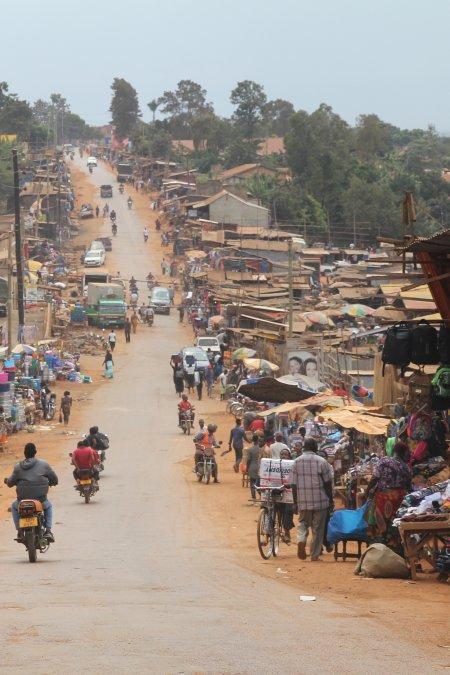
What drove you back to Africa?
A neat office job was never going to prepare me for the important work that I had been reading about at university. It seems like both the problems and the solutions in this part of the world are always larger than what the western world could offer. It was always a little bit uncomfortable to me that I could do all of the development studies and then not have the right terrain where these things happen where you can plot them back in.
The advantage for me of living in a place where development is happening and still has some way to go, is that I see the reality even as I come to work. It’s present and not just from a conceptual perspective. I see how people are adapting to climate change on a daily basis. I see practical and real life examples of what I’ve been reading about. The context is here, just as much as the solution space is waiting to be seized.
That gives me a real sense of how much work needs to be done.
What are the challenges that you face on a scientific and research level?
It's the research infrastructure. We can’t take for granted that in many institutes in this part of the world, you can’t just go to a computer, click a button and have access to journals to use for your own research. To get to different and deeper layers of knowledge, proper research infrastructure is needed. That’s one of the first challenges.
Many research institutes here have to play almost second fiddle because a lot of research that is done has been framed from the outside. For example, if you take the topic of the Prince Claus Chair: just transition. You’d be very hard pressed to find ten articles on just transitions from this part of the world. Because the framing of what a ‘just’ transition is, what just transitions should look like or the attributes of an unjust transition have already been established.
The undercurrents of political economy are deeply intertwined with the distribution of natural resources.
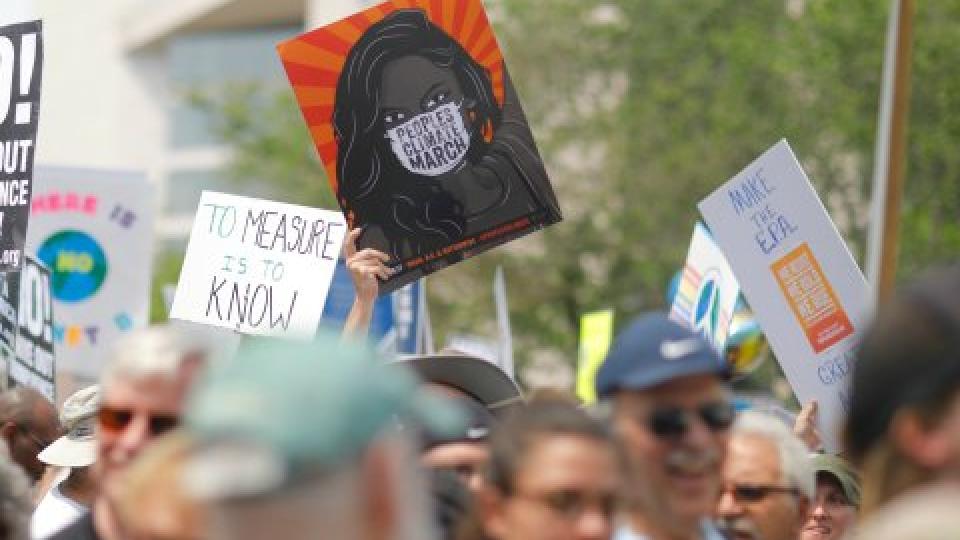
What’s difficult about that?
If the people that are going to be impacted by a problem don’t have the opportunity to really chime in and really bring their own voices and thoughts into the framing of a particular issue, it doesn't give you a very clear picture or very authentic picture of what the issue is and how it should be addressed. I would say there is sense in contesting the orthodoxy of knowledge.
The other challenge is about how research production is intersected with practice. Very often, practice is established and then the research has to follow. We’re entangled in a dance with policy makers. We have to realize that what we say, even if that may sound like gospel to us and is anchored on evidence based research, this may not necessarily rhyme with policy makers because they have to consider real life issues, electoral promises etc.
Could you explain this sensitive relation between politics and research?
The capital of Africa, it’s natural resources, have always been a very sensitive variate. They are very much part of Africa’s history, as it stands it’s the reason why Africa was colonized. But it’s also a futuristic matter. It’s an essential commodity for Africa’s growth. From gold to different forms of renewable energy and strategic minerals. The question is always: do we develop or do we not develop because policy choices on natural resources might affect communities whose water might become polluted etc.
The undercurrents of political economy are deeply intertwined with the management and distribution of natural resources. Research in this area more often follows policy than the other way around.In this light, what keeps you excited to go on?
As much as you can count five to ten challenges, there are ten to fifteen solutions as well. Challenges and solutions juxtapose in many ways. They are twins and we can draw on both of them. That’s where the excitement lies. African development hasn’t fully come through, but it is on course, and it's inevitable that the region will achieive its long-term developmental goals.
What role do you see for citizens and communities next to governments and (research) institutes?
An important one. The climate problem is not a biophysical issue alone. It's a societal problem. It needs a whole arsenal of responses from society to really delve into the challenges. That’s not going to happen by merely looking at it from a scientific basis. The challenge will be to not only make changes at the margins of society, but to make big changes in energy transitions that are transformational.
That makes energy transformation a matter of justice
You’ve stated that the energy transition is a justice problem.
The emission of carbon as a result of over consumption, mainly happens in one part of the world, while the development tools that have enabled that production of emissions have been absent in another part of the world. The consequences of aligning new strategies and tools to mitigate these emissions are that people much in need of development benefits related to energy, food and water security can no longer take advantage of that possibility because the global carbon budgets have been used to much of its entirety. That makes energy transformation a matter of justice.
Furthermore, if we are to follow suit in that sort of reckless consumption, we will do so at the peril of our health, our environment and we will be risking the future of our children. To further develop to a carbon neutral energy transition, we have to take financial measures. That’s difficult when your immediate priority is development. It leads to equity deficit and disparity.
To capture the communities most affected by carbon intense industries in a conventional debate
Your goal as holder of the Prince Claus Chair is to democratize the debate around just transitions and making sure that the voices and the participation of the communities that are most affected are being heard. Please expand?
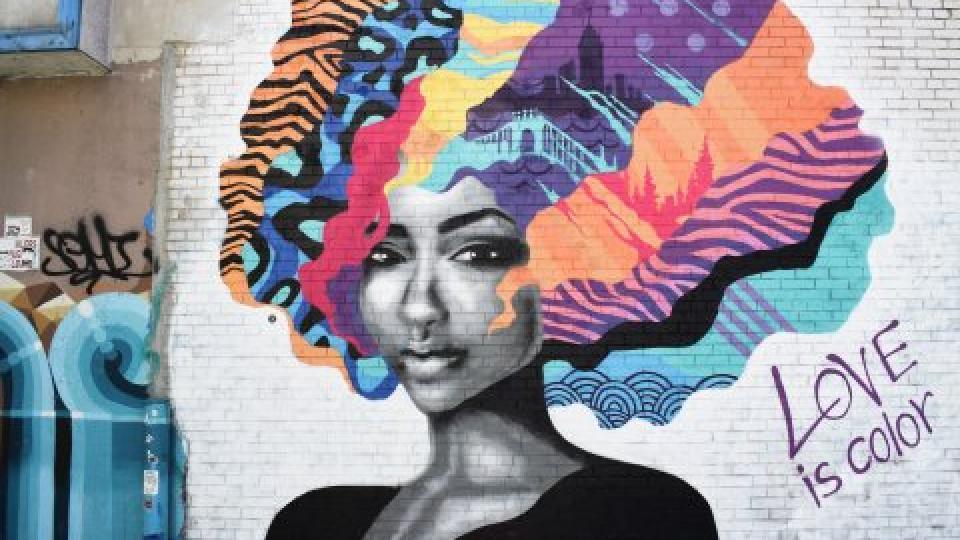
If we can begin to make just transition indigenous to the people in different parts of Africa, who are going to feel the full weight of the climate emergency. If those people can say, this is my example of unjust transition, if they can bring their voices to the mainstream debate that's being held, then that is progress and it will widen the space for additional solutions to emerge. And if those voices cannot be seen as a peripheral set of voices, but are central to the debate, then I would say that's a good start. At the moment there’s no way to capture the communities most affected by carbon intensive industries in a conventional debate, where they would be able to say: These are the ways I can obtain new skills to make a living, in which I can be supported. These are the ways in which my family and future generations can be supported.
So democratizing the issue, widening the spaces, and enabling voices are all part of putting just transitions on the policy and development radar. Producing a large evidence base on this issue with real life examples of what just transition means and what some of the solutions look like, would be an extremely important goal.
Our scientific solutions will depend entirely on the people’s imprints in those solutions
Your keynote at the Pathways to Sustainability Conference in Utrecht was focused on the future of climate change management. What can we expect?
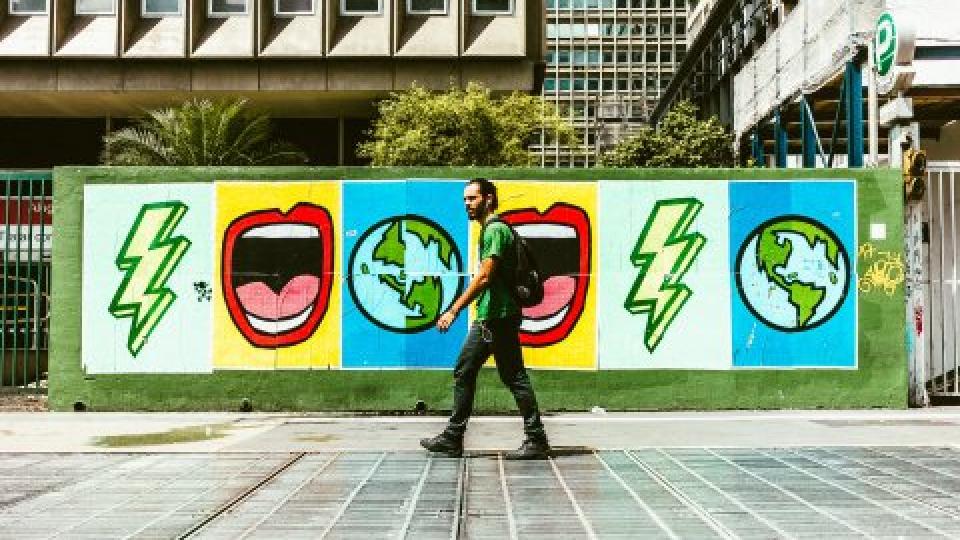
Preparing for the future of climate change and how you manage climate change is essential and I mentioned a thing or two about this during the keynote. What’s important here is that we cannot do without understanding the history of how climate change affects people.
People have always been at the center of their own solutions. They’ve always been able to say: This is the kind of weather we have, this is what we should expect. In other words: if the scientific knowledge goes full steam ahead and does not take into account the cultural ways of how these problems are addressed, we’ll have to turn around because that scientific knowledge is not going to be sufficient.
Take Zambia for example, where the coming of floods is celebrated in its Western Province through a festival called Kuomboka, which literally means to ‘get out of water’ was seen as a way of managing environmental crisis mediated through local institutions. So to solve the problems of climate change we need to be able to look at the cultural implications and solutions. The receptiveness of how people are going to take on our scientific solutions will depend entirely on the people’s imprints in those solutions.
Suggested citation: Utrecht University. "Interview with Fatima Denton, holder of the Prince Claus Chair in Equity and Development," United Nations University, UNU-INRA, 2024-09-27, https://unu.edu/inra/article/interview-fatima-denton-holder-prince-claus-chair-equity-and-development.

